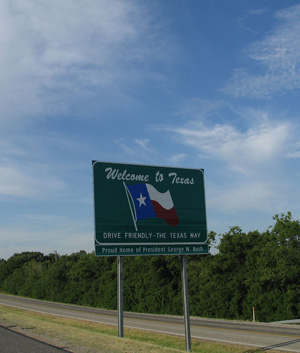
Is Texas' economic policy a good model for Oklahoma lawmakers?
Paul McCord Jr. / Flickr


Is Texas' economic policy a good model for Oklahoma lawmakers?
Paul McCord Jr. / Flickr
Whether the topic is tax reform, business regulation or jobs creation, Oklahoma lawmakers and budget stakeholders always seem to end up talking Texas. And that Texas economy is dominating the news, as Gov. Rick Perry continues his quest for the White House by arguing the Texas model of job creation can work nationwide.
But the two states are very different. In population, geographic size, and economic output, everything is much bigger in Texas.
So when it comes to state economic policy, does it make sense for lawmakers to gaze longingly at the Lone Star State?
State Treasurer Ken Miller says yes.
In the September edition of his Oklahoma Economic Report (right-click here to download), Miller argues that despite the differences between the two states, “Texas envy” is warranted.
“Considering the ease in which former Oklahoma-based companies have relocated to Texas, our state’s interest in Texas and its policies can be justified,” Miller wrote.
Miller’s editorial references the so-called “Texas Miracle,” in which the state chalked up 47 percent of the nation’s job creation since June 2009. Over the last decade, Texas added more jobs than all other states combined, Miller wrote, noting that detractors have criticized the low wages of the jobs added.
Oklahoma and Texas agree on economic fundamentals, Miller wrote.
“Texas policymakers credit the state’s success to long-standing adherence to low taxes and limited government, principles historically popular with both Texans and Oklahomans,” Miller wrote.
As it is in Texas, raising taxes isn’t a “viable” option in Oklahoma, Miller wrote, adding that economic policy in both states centers on spending priorities.
Since Oklahoma competes with Texas to lure in businesses, Miller argues that it makes sense to discuss ways to match that state’s “low-tax, low-regulatory environment.”